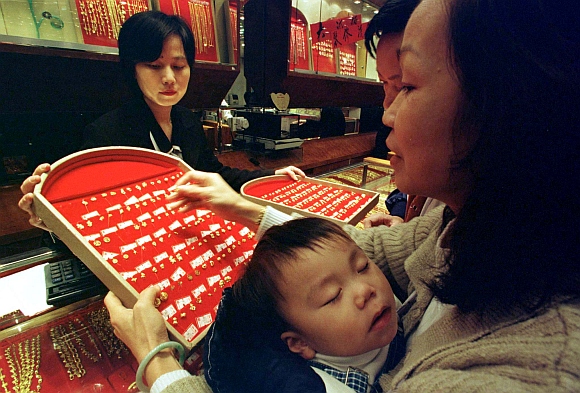 | « Back to article | Print this article |
Ad brands Chinese as 'locusts' in HK; sparks anger
A controversial advertisement in a Hong Kong daily branding Chinese as "locusts" has evoked angry reactions in China amid growing resentment among people in the island city over rising mainland influence.
The Hong Kong-based Apple Daily carried a full page advertisement on Wednesday demanding the local government stop pregnant women from the mainland from entering Hong Kong, which enjoys status of special administrative region after the former British colony was brought under control of China, 15 years ago.
The ad features a huge locust over Hong Kong's skyline with a headline saying, "Do you want Hong Kong to pay $1,000,000 every 18 minutes to raise babies whose parents are not permanent residents here?"
"Hongkongers have had enough!" the ad said adding that people there have tolerated mainlanders' craze for "safe baby formula, self-guided tours and advanced educational resources," among other things.
The accusations sparked a heated debate after the ad was circulated by microbloggers in the mainland. Reacting to the advertisement some of web users said that the words in the ad were much too strong considering the assistance and support that the mainland provides to Hong Kong.
Click NEXT to read further...
Ad brands Chinese as
One of the entries on Sina Weibo, China's microblogging site, has been reposted around 97,000 times and received over 30,000 comments, the Chinese state run Global Times reported on Thursday.
The ad campaign came amid several disputes between people in the two areas, which reflected growing mainland phobia in the Special Administrative Regions and continuous debate on national identity, it said.
Analysts say growing differences between mainlanders and people of tiny Hong Kong is emerging as a major concern for Chinese leadership as the rift continue to widen.
Many from mainland have chosen to give birth in the SAR in recent years so that their children can get permanent residency there. According to figures from census and Statistics Department of Hong Kong out of the 88,500 newborns in the region in 2010, more than 45 per cent, or 40,000, were children of mainland mothers.

